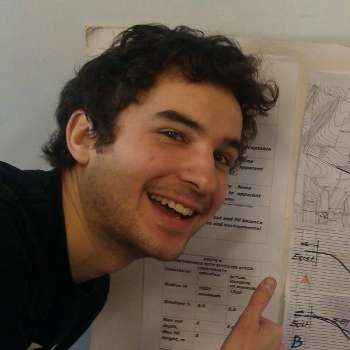Birmingham Contemporary Music Group is celebrating its 25th anniversary this season, and as it does so it is marking the anniversary of Benjamin Britten’s birth. BCMG is touring a programme of Britten’s early compositions, the second stop of which was at Turner Sims in Southampton.
John Woolrich, BCMG Artist-in-Association, was introduced as a “master programmer” by the Turner Sims representative. While I was initially sceptical of such a description it became clear as the concert progressed that the selection and theme of the concert were central to its success. Woolrich put Britten next to Alban Berg, for the former adored the music of the latter. Britten’s friendship with the senior Aaron Copland was similarly referenced, and his long shadow is said to have coloured the work of Oliver Knussen and Hans Werner Henze, the two more contemporary contributors to the programme. Of course, with such biographical and contextual programming we are invited to draw musical comparisons between the composers’ outputs, and this proved to be easier in some cases than in others. Aaron Copland’s Nocturne for piano and violin has an easy charm and a quaint nationalist tone, but this is coupled with an unusual degree of tonal discomfort. Malcolm Wilson and Alexandra Wood carefully exploited the dissonant corners in their exchanges, before letting loose on their respective intermezzo solo moments. A little later, Britten’s Lullaby, from his Op. 6 suite for violin and piano, was played with a similar balance, in this instance a kind of Vaughan Williams modality was blended with some really inventive harmonic turns. Wood showed her flexibility and range as she carried off some beautiful double-stopping for the Nocturne, and an accompaniment part fit for a viol in Lullaby.
Berg’s Four Pieces for clarinet and piano demonstrated the kind of style that Britten could have developed, had he been allowed by his college to study under the great Austrian’s tutelage. Rather than simply indulging the audience in speculation, the four pieces were played with shocking intensity by Wilson and Joanna Patton. Berg’s skill at melodic writing and his tendency towards drama were in good hands with Patton, who would dig into low notes with a rough, agricultural growl, only to fly back up the scale for a theme of bracing high notes. In each of the four pieces Wilson and Patton achieved a plurality of moods, which is particularly impressive given their extremely short length. One such mood change bordered on the theatrical as it employed a series of antiphonal prods, lending Berg’s sometimes dense writing a little levity. Berg’s Adagio for violin, clarinet and piano might have benefited from a little of that, though its scale and busy layering do not necessarily lend themselves to a lightness of touch. The thick clusters of jazz-era chords that Wilson played with a reined-in Bill Evans touch established a false calm, before the increasing pressure of Wood’s four-note phrases inflated the piece into an intense web of autonomous parts. This is the Berg that some are glad was kept away from Britten; a more challenging proposal to be sure. It does compare easily to the first third of Oliver Knussen’s Cantata for oboe and string trio, however, which is in a frantic state of activity in four parts before the long drawn-out passage that ultimately drifts off into sedative.
Britten’s Phantasy Quartet for oboe and string trio closed the concert with a comma, rather than a full stop. The clever writing for the strings is based on a measured groove which passes through chords quickly and through the dynamic arc slowly. The musicians each played with the bigger picture in mind, but in the moments where the score calls for virtuosity, they were far from shy; for instance, Melinda Maxwell dispatched some truly demanding oboe runs in staccato, before returning to the plaintive voicing of sentimentality that so much of Britten’s music comprises.
The talent of the BCMG players, with the help of a fantastic programme, succeeded in producing a show of the highest quality. It was thought-provoking in its juxtapositions and emotive in its content, and with such short pieces it covered a lot of ground in the space of one afternoon. A fine way to celebrate 20th-century music generally and Britten specifically.


